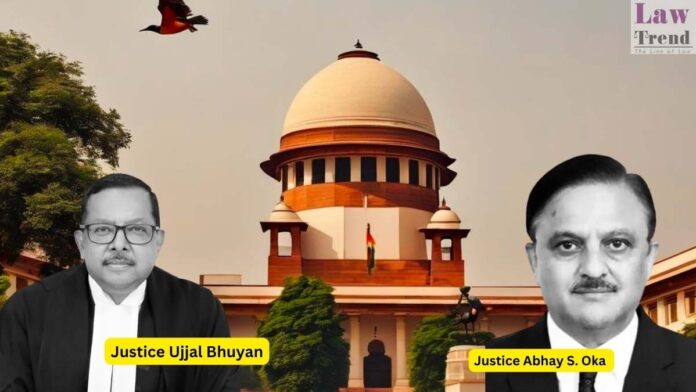In a landmark judgment, the Supreme Court of India in State Bank of India & Ors. v. Navin Kumar Sinha (Civil Appeal No. 1279 of 2024) declared that disciplinary proceedings initiated after the retirement or cessation of service of an employee are void unless explicitly provided by law. The case clarifies the legal principle that
To Read More Please Subscribe to VIP Membership for Unlimited Access to All the Articles, Download Available Copies of Judgments/Order, Acess to Central/State Bare Acts, Advertisement Free Content, Access to More than 4000 Legal Drafts( Readymade Editable Formats of Suits, Petitions, Writs, Legal Notices, Divorce Petitions, 138 Notices, Bail Applications etc.) in Hindi and English.




